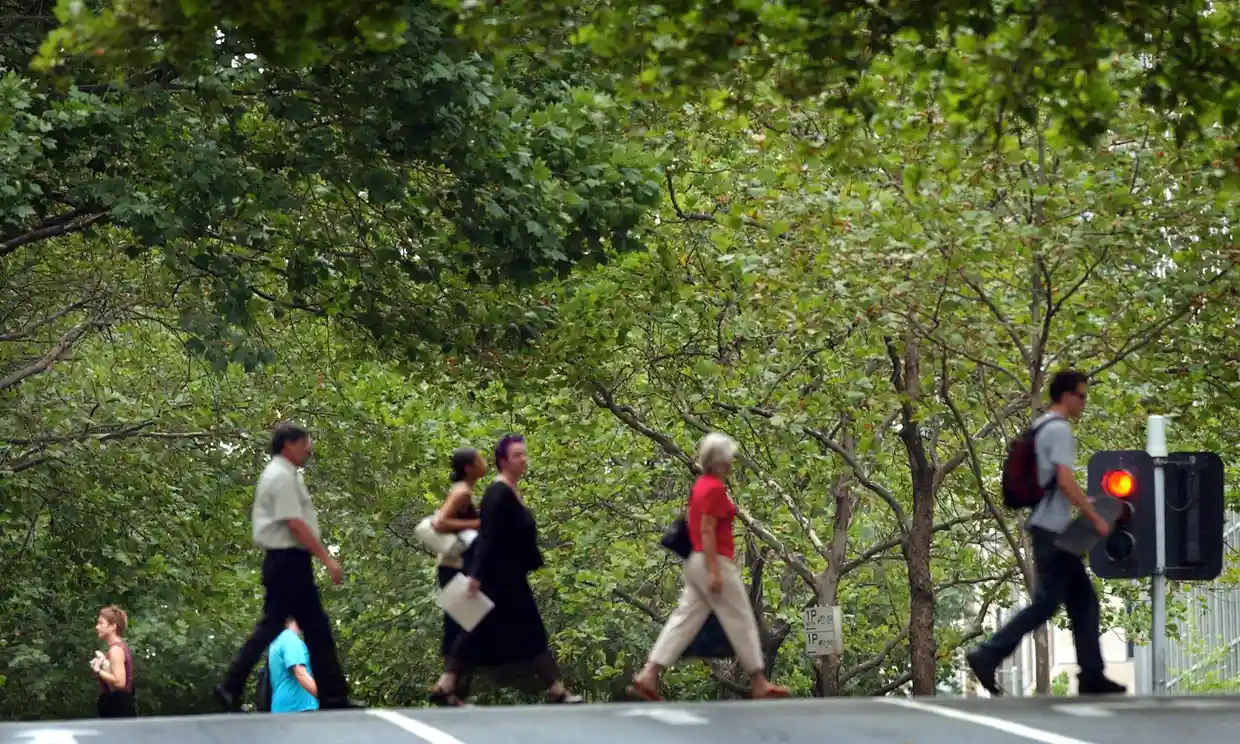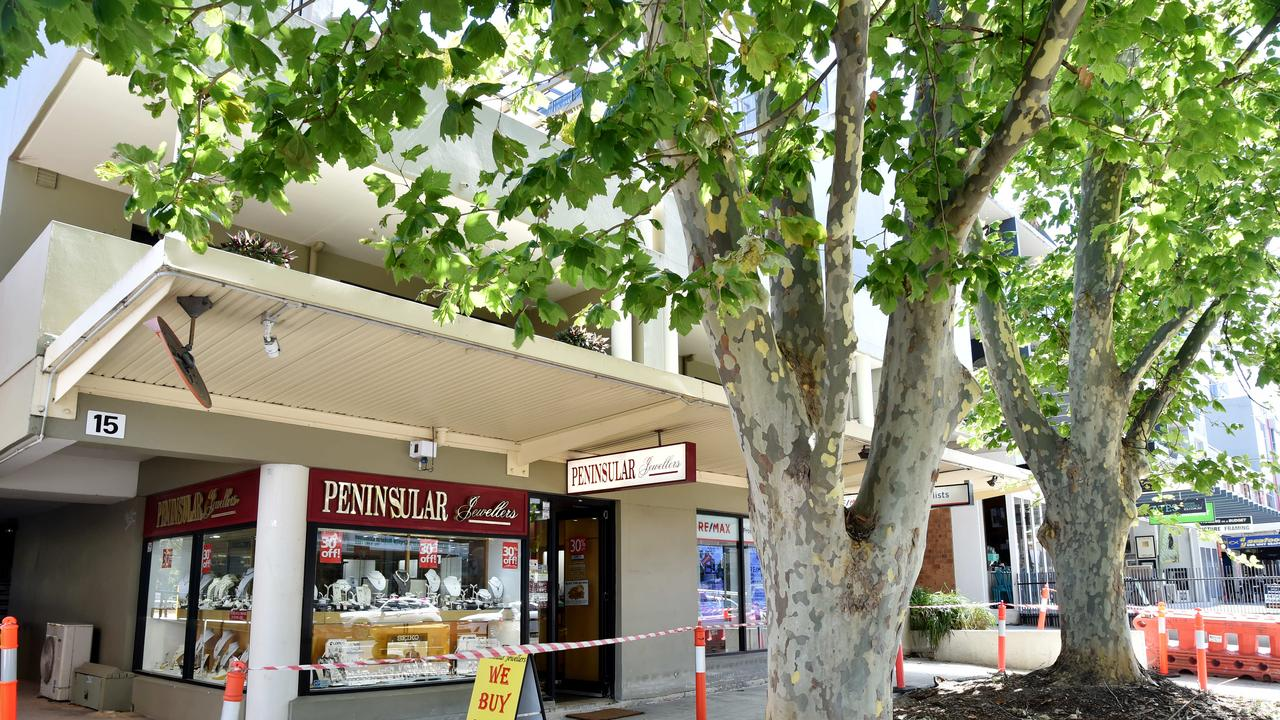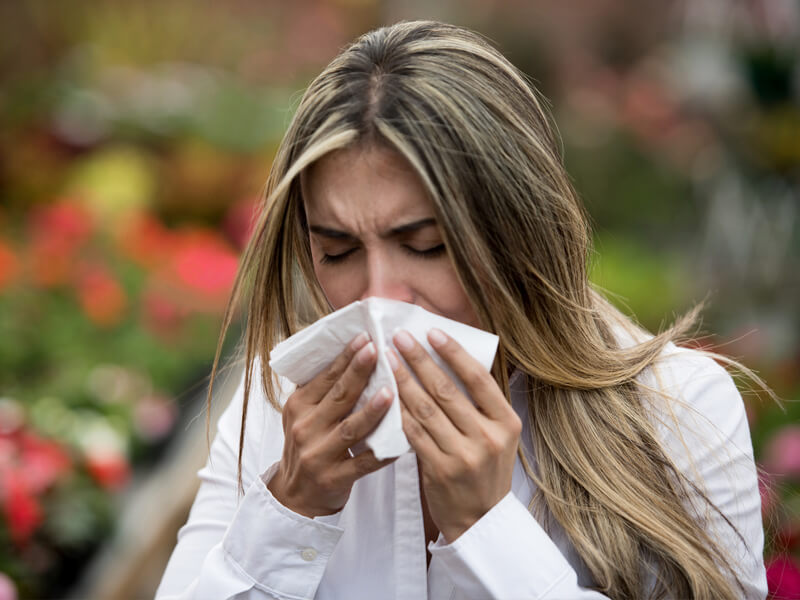Spring season got you down? Here's why your hay fever is getting worse, according to a doctor
- Replies 10
To our members who suffer from asthma and hay fever, you may find that you have a particularly rough time at the beginning of September.
There is a double whammy during this time of year: flu and pollen – and wind-pollinated grasses, weeds, and trees are typically to blame for the latter.
Here, a medical professional explains the strange scientific evidence for the alarming rise in cases of hay fever, especially in Sydney and Melbourne.
Dr Zac Turner, a medical doctor and co-owner of the telemedicine service Concierge Doctors, says that while some people welcome the return of warmer weather and the opportunities to spend more time outdoors, for others, the arrival of spring means an endless battle against pollen everywhere.

Fallen leaves from London plane trees are huge triggers of allergies and hay fever. Credit: AAP/Joe Castro.
In a weekly column with news.com.au, Dr Turner went and answered a question from a reader, asking him if there are ways to 'desensitise' yourself from pollen, especially if you suffer from allergies and hay fever.
The reader also wanted to know if it's true that the abundant London plane trees in Melbourne are a big trigger for people with hay fever.
Dr Turner responded by saying that, yes, London plane trees do trigger severe hay fever symptoms for many Aussies, especially those living in urban areas with dense London plane tree populations.
'Think of hayfever and allergies as a bushfire, and London plane trees as napalm being thrown into the blaze,' he said.
Dr Turner says that most Australians who live in Melbourne and Sydney know what a London plane tree looks like, but they don't know what it's called. In Sydney and Melbourne, they make up a similar proportion of the total tree population—roughly 70%. (Wow, that's almost a forest full of allergy-inducing trees…)
'The tree is popular with developers and town planners because these trees are quick growing, pollution tolerant and overall have a pleasing aesthetic,' he said.
He explained, however, that with these trees, what's commonly ignored are the falling leaves, which during the height of spring release soot hairs known as trichomes.

London plane trees are abundant in Melbourne and Sydney. Credit: AAP/Troy Snook.
Trichomes are tiny hairs with a spiky appearance that cover the young leaves of plane trees in the spring. As the leaves mature, the trichomes fall off and are dispersed into the air.
'The fine particles from plane trees could cause throat irritation and laryngospasm, a spasm of the vocal cords, even in people who are not prone to allergies,' said Dr Turner.
'The studies are fresh, but they suggest that those with existing allergies often have exacerbated reactions due to trichomes. It's shown that these spores also exacerbate asthma, emphysema and bronchitis.'
Dr Turner also provided an example of how these microscopic spores have harmed people who were completely unaware they were being infected.
'Ten years ago, Australian hospitals did 10 full lung transplants a year. Now they do about 20 just in Sydney,' he said, adding: 'If you have asthma or serious allergies and breathe in just one of these spores, you could end up being one of those lung transplants if you have a bad reaction.'
The health expert also said that he really thinks all Australian councils should make it illegal to plant these trees because they will most likely cause 'a new pandemic'.
But instead of telling people to become guerrilla gardeners and cut down these trees, he instead suggested some habits that Aussies can do to avoid itchy eyes or worse, a trip to the hospital.

This spring, you can avoid suffering from severe allergies or hay fever by taking a few preventative measures. Credit: The House of Wellness. (Stock photo)
Here are his recommendations:
For those of you who suffer from allergies or hay fever, we hope Dr Turner's advice may be helpful to you as well! But, as always, we feel it necessary to remind you that it is always preferable to consult with your doctor in order to find out what works best for you and your particular condition.
Members, please make sure you are keeping yourself safe and healthy this spring season!
There is a double whammy during this time of year: flu and pollen – and wind-pollinated grasses, weeds, and trees are typically to blame for the latter.
Here, a medical professional explains the strange scientific evidence for the alarming rise in cases of hay fever, especially in Sydney and Melbourne.
Dr Zac Turner, a medical doctor and co-owner of the telemedicine service Concierge Doctors, says that while some people welcome the return of warmer weather and the opportunities to spend more time outdoors, for others, the arrival of spring means an endless battle against pollen everywhere.
Fallen leaves from London plane trees are huge triggers of allergies and hay fever. Credit: AAP/Joe Castro.
In a weekly column with news.com.au, Dr Turner went and answered a question from a reader, asking him if there are ways to 'desensitise' yourself from pollen, especially if you suffer from allergies and hay fever.
The reader also wanted to know if it's true that the abundant London plane trees in Melbourne are a big trigger for people with hay fever.
Dr Turner responded by saying that, yes, London plane trees do trigger severe hay fever symptoms for many Aussies, especially those living in urban areas with dense London plane tree populations.
'Think of hayfever and allergies as a bushfire, and London plane trees as napalm being thrown into the blaze,' he said.
Dr Turner says that most Australians who live in Melbourne and Sydney know what a London plane tree looks like, but they don't know what it's called. In Sydney and Melbourne, they make up a similar proportion of the total tree population—roughly 70%. (Wow, that's almost a forest full of allergy-inducing trees…)
'The tree is popular with developers and town planners because these trees are quick growing, pollution tolerant and overall have a pleasing aesthetic,' he said.
He explained, however, that with these trees, what's commonly ignored are the falling leaves, which during the height of spring release soot hairs known as trichomes.
London plane trees are abundant in Melbourne and Sydney. Credit: AAP/Troy Snook.
Trichomes are tiny hairs with a spiky appearance that cover the young leaves of plane trees in the spring. As the leaves mature, the trichomes fall off and are dispersed into the air.
'The fine particles from plane trees could cause throat irritation and laryngospasm, a spasm of the vocal cords, even in people who are not prone to allergies,' said Dr Turner.
'The studies are fresh, but they suggest that those with existing allergies often have exacerbated reactions due to trichomes. It's shown that these spores also exacerbate asthma, emphysema and bronchitis.'
Dr Turner also provided an example of how these microscopic spores have harmed people who were completely unaware they were being infected.
'Ten years ago, Australian hospitals did 10 full lung transplants a year. Now they do about 20 just in Sydney,' he said, adding: 'If you have asthma or serious allergies and breathe in just one of these spores, you could end up being one of those lung transplants if you have a bad reaction.'
The health expert also said that he really thinks all Australian councils should make it illegal to plant these trees because they will most likely cause 'a new pandemic'.
But instead of telling people to become guerrilla gardeners and cut down these trees, he instead suggested some habits that Aussies can do to avoid itchy eyes or worse, a trip to the hospital.
This spring, you can avoid suffering from severe allergies or hay fever by taking a few preventative measures. Credit: The House of Wellness. (Stock photo)
Here are his recommendations:
- If you have asthma, make sure you have plenty of puffers and keep one in your pocket at all times.
- Keep a supply of antihistamines on hand and use them as needed.
- Wear sunglasses with a wraparound frame when you're outside, and stay away from areas with a lot of plane trees in the spring.
- Make a plan with your doctor to deal with your allergies and get tested to find out what exactly sets them off.
For those of you who suffer from allergies or hay fever, we hope Dr Turner's advice may be helpful to you as well! But, as always, we feel it necessary to remind you that it is always preferable to consult with your doctor in order to find out what works best for you and your particular condition.
Members, please make sure you are keeping yourself safe and healthy this spring season!







